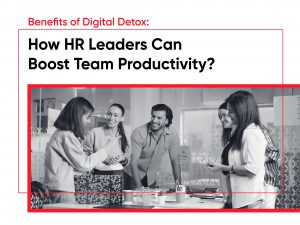Reading Time: 5 minutes
In an ever-changing and technologically-driven world, the future of work is undergoing a seismic shift. Rapid advancements in automation, artificial intelligence (AI), and digital technologies are disrupting industries, leading to a demand for new skills and competencies. In this dynamic landscape, upskilling has emerged as a critical strategy for individuals and organizations to remain competitive and thrive. This article delves into the significance of upskilling for the future workforce, exploring its benefits, challenges, and the role it plays in shaping a sustainable and successful future.
The Changing Landscape of Work
Over the past few decades, the traditional job landscape has evolved significantly. Jobs that were formerly thought to be steady and secure are now being replaced or supplemented by algorithms and machines. The World Economic Forum’s Future of Jobs Report 2020 predicted that by 2025, approximately 85 million jobs could be displaced, while 97 million new roles may emerge, primarily driven by technology shifts.
Such radical transformations in the labor market necessitate a paradigm shift in how individuals approach their careers and how organizations develop their talent pipelines. Upskilling is the answer to bridge the gap between the skills of today and the demands of tomorrow.
Adapting to Technological Advancements
Technological advancements, such as AI, machine learning, and robotics, are revolutionizing industries, leading to a demand for new skill sets. Jobs that require repetitive tasks and low-level skills are most at risk of being automated. To remain employable and adaptable, individuals need to acquire expertise in areas that complement automation, such as critical thinking, problem-solving, creativity, and emotional intelligence.
For instance, in the manufacturing industry, routine tasks on the assembly line are now being performed by robots. However, humans are still essential in programming, maintaining, and troubleshooting these machines. By upskilling in technical and programming skills, workers can enhance their value and job security.
Enhancing Employability and Job Mobility
Upskilling not only prepares individuals for the jobs of the future but also increases their employability and job mobility in the present. Having a diversified skill set increases a candidate’s appeal to employers in a tight labor market. According to leading reports, 94% of employees would stay longer with a company that invested in their career development. Offering upskilling opportunities can lead to higher retention rates, reducing recruitment costs for organizations.
Additionally, upskilling empowers individuals to switch careers or industries if needed. As certain job roles decline due to technological advancements, upskilling can facilitate a smoother transition into other fields with higher growth potential.
Fostering Innovation and Creativity
Upskilling doesn’t just prepare individuals to adapt to change; it also cultivates a culture of innovation and creativity within organizations. When employees are encouraged to learn new skills and explore different areas of expertise, they become more open to experimentation and embracing new ideas.
Companies may unlock the potential of their employees by establishing a culture of ongoing learning and skill development, which will boost their capacity for innovation and problem-solving. This culture of innovation can lead to the development of new products, services, and processes, giving organizations a competitive edge in the market.
Narrowing the Skills Gap
The quick development of technology frequently causes a mismatch in the abilities that employees possess and those that businesses need. This disparity is known as the skills gap and is a significant challenge for many industries.
Upskilling initiatives can play a crucial role in narrowing this skills gap. By identifying the specific skills in demand and providing targeted training and development programs, organizations can equip their employees with the competencies needed to meet the current and future demands of the industry.
Creating Resilient Organizations
Upskilling is not just about individual growth; it is also about building resilient organizations that can adapt to change and thrive in uncertainty. In times of economic downturn or disruptive changes, companies with a highly skilled workforce are better equipped to pivot their strategies, embrace new opportunities, and overcome challenges.
Furthermore, upskilling ensures that companies have a pool of internal talent ready to step into leadership positions when needed. Developing leaders from within the organization fosters a sense of loyalty, trust, and camaraderie among employees.
Challenges and Barriers to Upskilling
While the benefits of upskilling are compelling, there are challenges and barriers that both individuals and organizations may face in implementing effective upskilling programs:
1. Time and Resource Constraints: Employees and organizations often struggle to find the time and resources to invest in upskilling. In a fast-paced work environment, dedicating time to learning can be a challenge.
2. Identifying Relevant Skills: It is essential to identify the skills that are most relevant to the organization and its industry. A mismatch between the skills being taught and those in demand can render upskilling efforts ineffective.
3. Resistance to Change: Some employees may resist upskilling due to a fear of change or a lack of confidence in their ability to learn new skills.
4. Retention of Upskilled Employees: Organizations that invest in upskilling their workforce may face the challenge of retaining these newly skilled employees, as other companies may offer higher salaries or better opportunities.
5. Aligning Upskilling with Business Goals: For upskilling to be effective, it must align with the organization’s long-term business goals. Failing to connect upskilling initiatives with strategic objectives can result in wasted resources.
It is necessary to take a deliberate and planned approach to upskilling to address these issues, with an emphasis on fostering a culture of learning that promotes ongoing development.
The Role of Upskilling in Building a Sustainable Future
As the future of work continues to evolve, upskilling has become an essential strategy for individuals and organizations to stay relevant and competitive. The rapid advancement of technology and changing job market demands necessitate continuous learning and adaptability.
Upskilling not only prepares individuals for new job roles but also enhances employability, fosters innovation, narrows the skills gap, and creates resilient organizations. Despite the challenges, the benefits of upskilling are undeniable, making it a vital tool for shaping a prosperous and sustainable future.
Both individuals and organizations must promote a culture of ongoing learning and development if they want to succeed in the face of unpredictability. By working hand in hand, individuals and organizations can forge a future workforce that is prepared to seize opportunities, drive progress, and navigate the complexities of a rapidly changing world.










